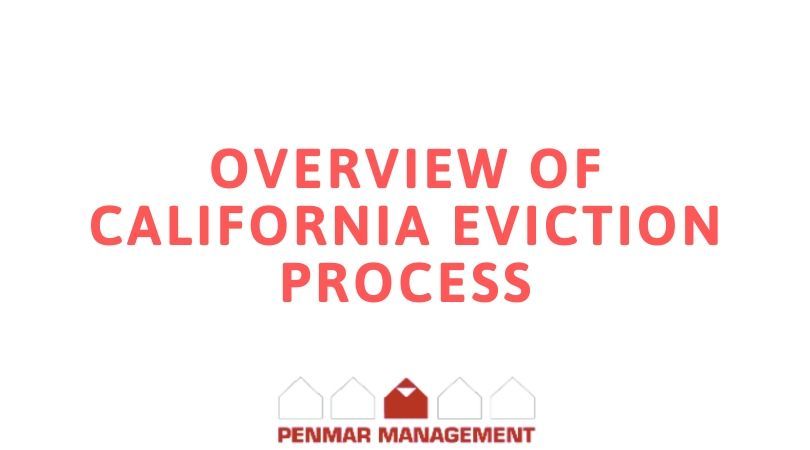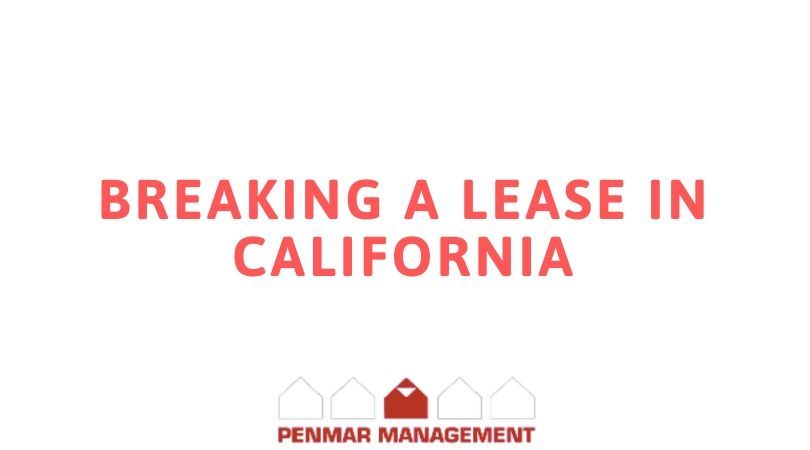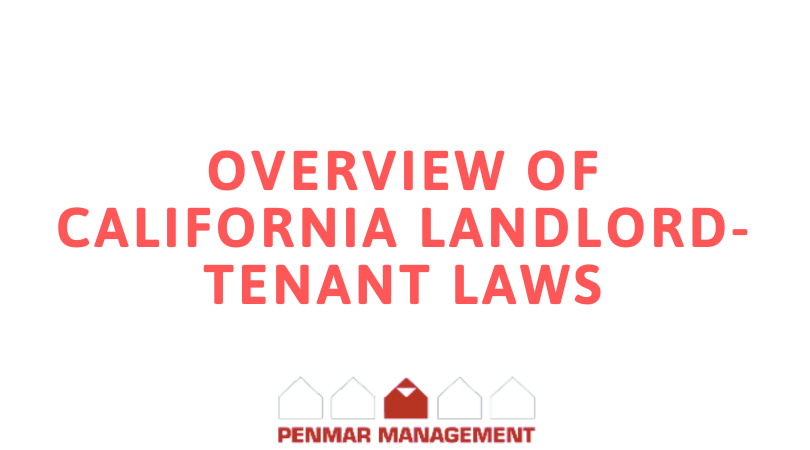If you shop for property management services, you may get the impression that property managers will not give straight, honest answers when asked about their fees. Why is that? Like all businesses, the property manager wants to sell his services at a price where he can cover all of his expenses and still make a profit on his investment. If he was selling bananas, he could figure out his costs, and add a reasonable profit to come up with his desired net income. Then he would divide this desired sum by the number of bananas he plans to sell to get his unit price. When a customer asks how much are his bananas, he can just quote this unit price and the customer is satisfied that he got a straight, honest answer. Why can’t property managers be as straight forward?
Blog Post
California Eviction Laws
Bob Green • Jan 08, 2020
Overview of California Eviction Process
What Is the Eviction Process in California?
Here is a guide:
Evictions are an inescapable facet of running a property rental business. In South Bay, California, eviction lawsuits are termed as unlawful detainer actions. One can expect for the proceedings to last approximately one month.
The Superior Court of the State of California governs the eviction process and grants the tenant the right to a hearing. The trial allows the landlord and the tenant to present both their cases and evidences. Should the tenant lose the case, the judgment will appear for seven (7) years at the tenant’s credit report.
This guide will help you navigate the eviction procedure in South Bay, California.
Eviction Notice in California
A California landlord can evict a renter for various reasons. Such reasons include:
● Tenant is unable to pay the rent
● Tenant is guilty of violation of the leasing agreement
● Tenant is guilty of committing an illegal act on the property
The type of eviction notice to be used is determined by the reason for the termination. Generally, there are three types of eviction notices given in South Bay, California:
● 3-Day Notice to Pay Rent
is given to a tenant who has failed to pay the rent in South Bay, California. Should the three days pass without payment, the landlord can file a Summons and Complaint for Unlawful Detainer at the court.
● 3-Day Notice to Cure
is given to a tenant who has violated the lease agreement in South Bay, California. Should the three days pass without fixing the violation issue, the landlord can file a Summons and Complaint for Unlawful Detainer at the court.
● 3-Day Unconditional Quit Notice
is given to a tenant who has committed a grave violation of the lease agreement in South Bay, California. This includes the following: the tenant is guilty of committing an illegal act in the property, created nuisance, committed a large amount of damage in the property and sublet the property without the landlord’s permission.
After 3 days, the landlord can file a Summons and Complaint for Unlawful Detainer at the court if the tenant has not left the property.
Serving a Tenant With an Eviction Notice
Without a cause, procedures for terminating a lease depend on the length of the tenancy. If it is a monthly lease, the landlord-tenant laws in California require you to give the tenant a written thirty (30) day
notice to end their tenancy. This applies to tenants who had been renting in your unit for up to twelve (12) months.
If the term of the lease is more than one year, the landlord-tenant laws in California requires you to give the tenant a written sixty (60) day
notice to end their tenancy. Failure of the tenant to move after the prescribed period permits the landlord to file a Summons and Complaint for Unlawful Detainer at the court.
Tenant Eviction Defenses in California
The defense is a reason why you (the petitioner) should not win the case. A tenant may claim:
● Discrimination of his/her protected classes under the Fair Housing Act. This includes gender, race, religion, national origin, familial status, disability, sexual orientation, gender identity, gender expression and age.
● Landlord retaliation for the tenant’s reporting of unsafe or uninhabitable living conditions.
● Landlord is guilty of committing self-help eviction by shutting down utilities and changing the locks of his property.
● Payment of the rent has been made in full to the landlord within the prescribed 3-day period.
● Landlord has not met the required standards of property maintenance.
● The violation of the leasing agreement has been rectified by the tenant within the prescribed 3-day time frame.
Attending Court Hearing
A tenant is given five (5) days to respond after the filing of a Summons and Complaint for Unlawful Detainer. Failure to do so grants the landlord advantage to request for a default judgment. Note though that the landlord is responsible for presenting the burden of proof at the hearing and so, he or she should be prepared to furnish solid evidence.
If the tenant responds within the appropriate time to the Summons and Complaint for Unlawful Detainer however, a trial schedule is set up within twenty (20) days. A judge handles most cases since a trial by jury generally involves additional jury fees.
Writ of Possession
A Writ of Possession
will be granted to the landlord once the judge makes the decision in his favor.
This writ will be used if the tenant stays beyond the five (5) days
extension from the date of the court judgment.
The Eviction in California
The Sheriff is given three (3) days
to serve the Writ of Possession to the tenant. In some cases, the judge may grant a tenant Relief From Forfeiture. This allows the tenant to stay on the property. This is only granted when it can be proven that the tenant is undergoing great hardship and can prove that he can pay the rent in a specific time period.
The tenant also has an option to file for a Stay of Eviction should he lose the court case. This must be filed in writing and quickly given to the landlord within 24 hours of request. The tenant is obliged to pay the rent daily on each stay if the court grants him a Stay of Eviction. The court permits the tenant to stay on the property for a period of forty (40) days
only.
The landlord is tasked to store a tenant’s belongings for eighteen (18) days
should a tenant have personal belongings left in his rental property. After the prescribed period, the landlord is allowed to discard the tenant’s unclaimed belongings.
The Bottom Line
If you have specific questions, hire the services of a qualified California attorney. Alternatively, you can seek help from a knowledgeable property management company.
Please note this blog should not be used as a substitute for legal advice from a licensed attorney in your state. Laws frequently change, and this post might not be updated at the time of your reading. Please contact Penmar Property Management
for any questions you have in regards to this content or any other aspect of your property management needs.
New Paragraph
Penmar Management
21250 Hawthorne Blvd STE 500
Torrance, CA 90503
(310) 326-3424
info@penmarmanagement.com
BRE #00825088
Areas We Serve
Rolling Hills Estates
Walteria
Golden Hills
South Shores
San Pedro
Holy Trinity
Downey
Lawndale
South Gate
Inglewood
Harbor Gateway
Hollywood Ranch
Los Angeles (Southern)
Contact Us Today!
Thank you for contacting us.
We will get back to you as soon as possible
We will get back to you as soon as possible
Oops, there was an error sending your message.
Please try again later
Please try again later







